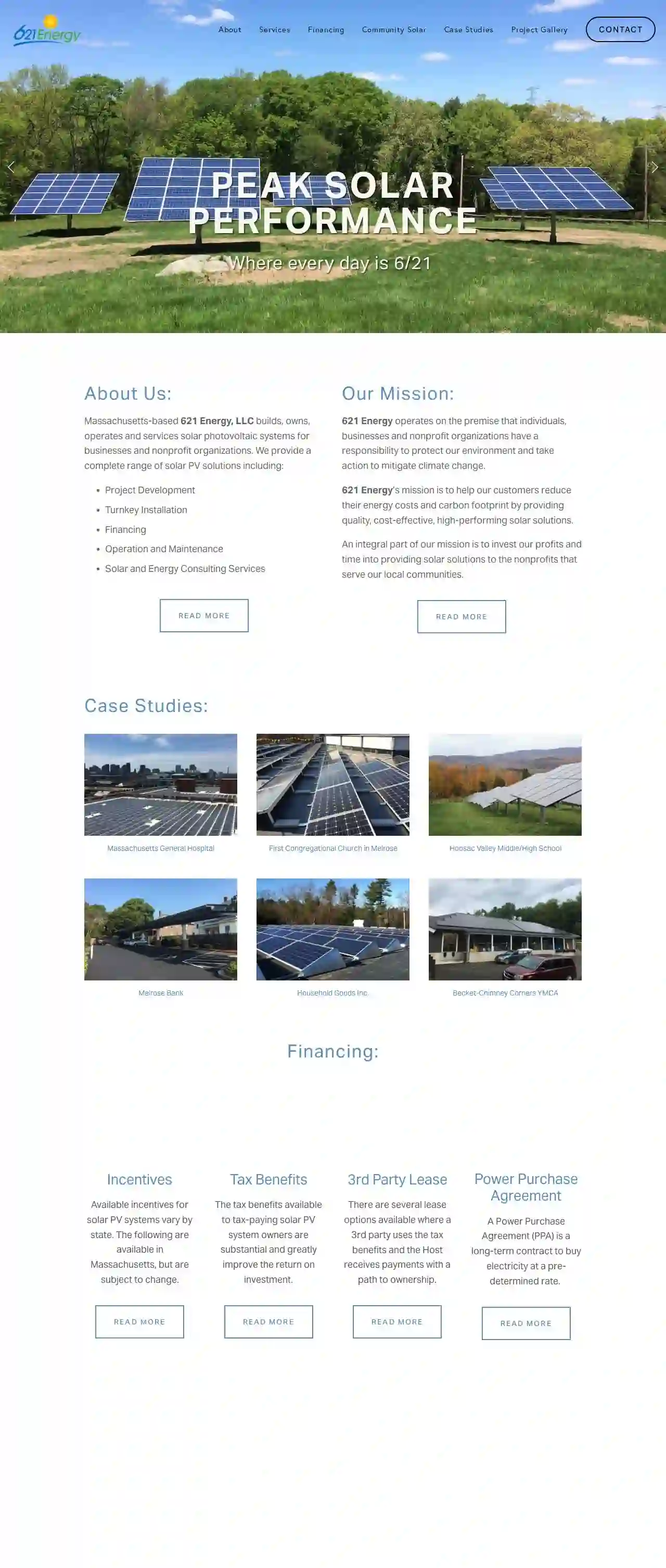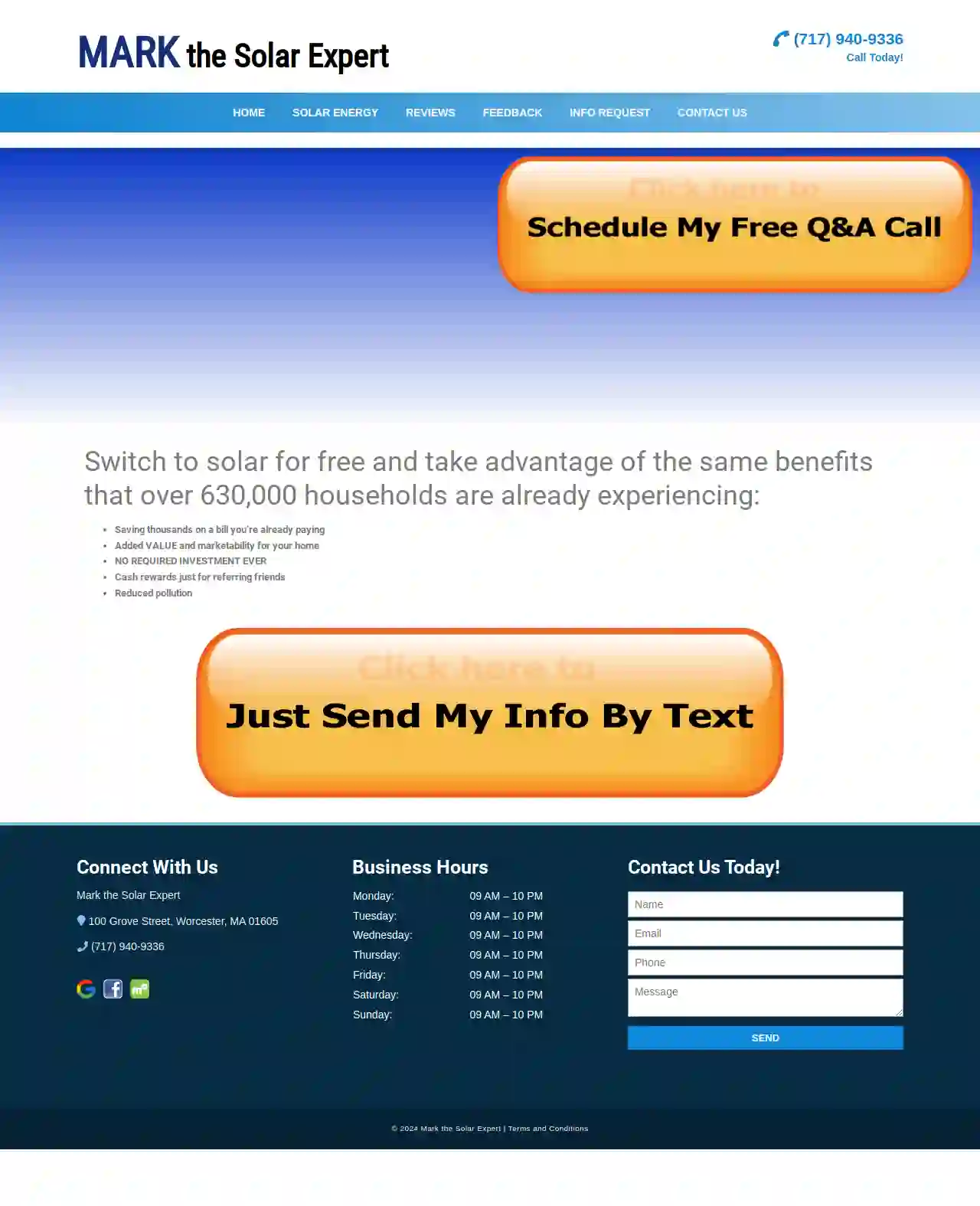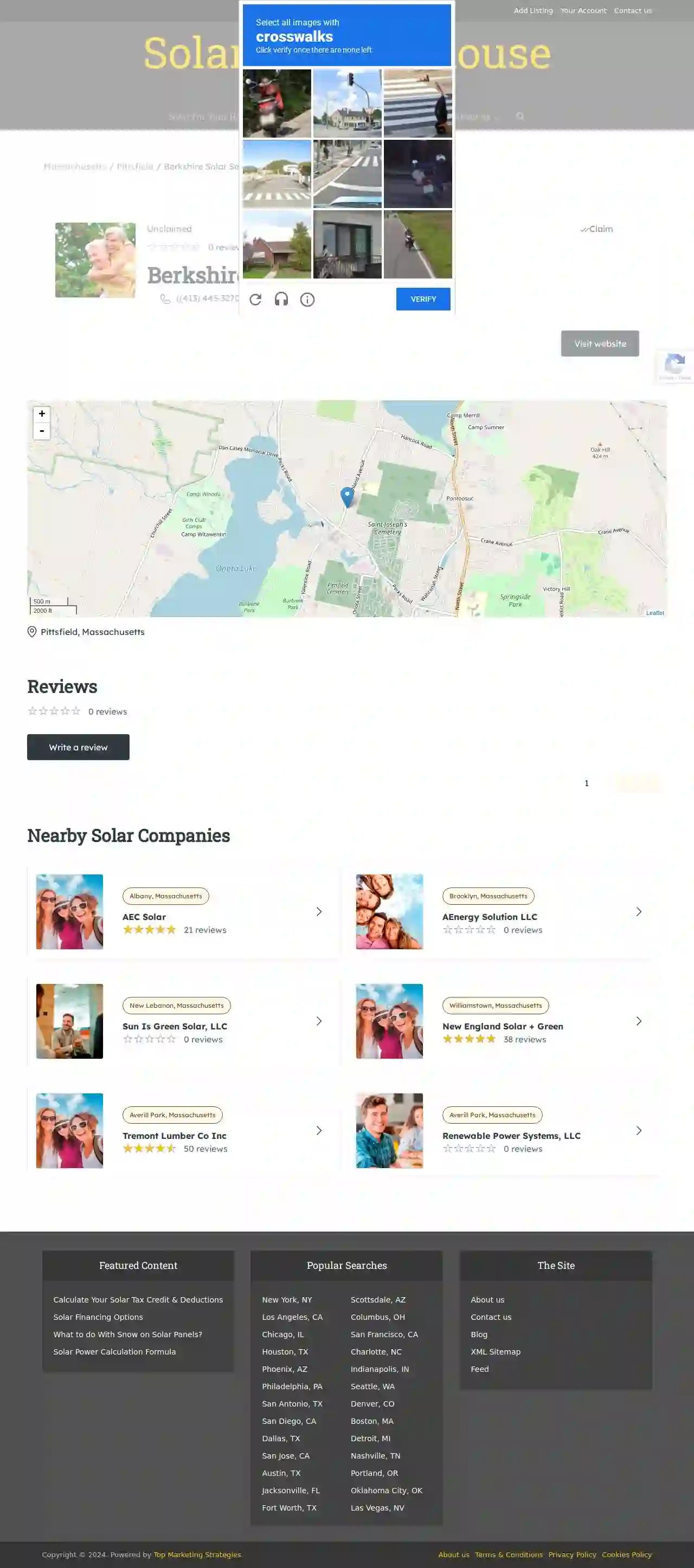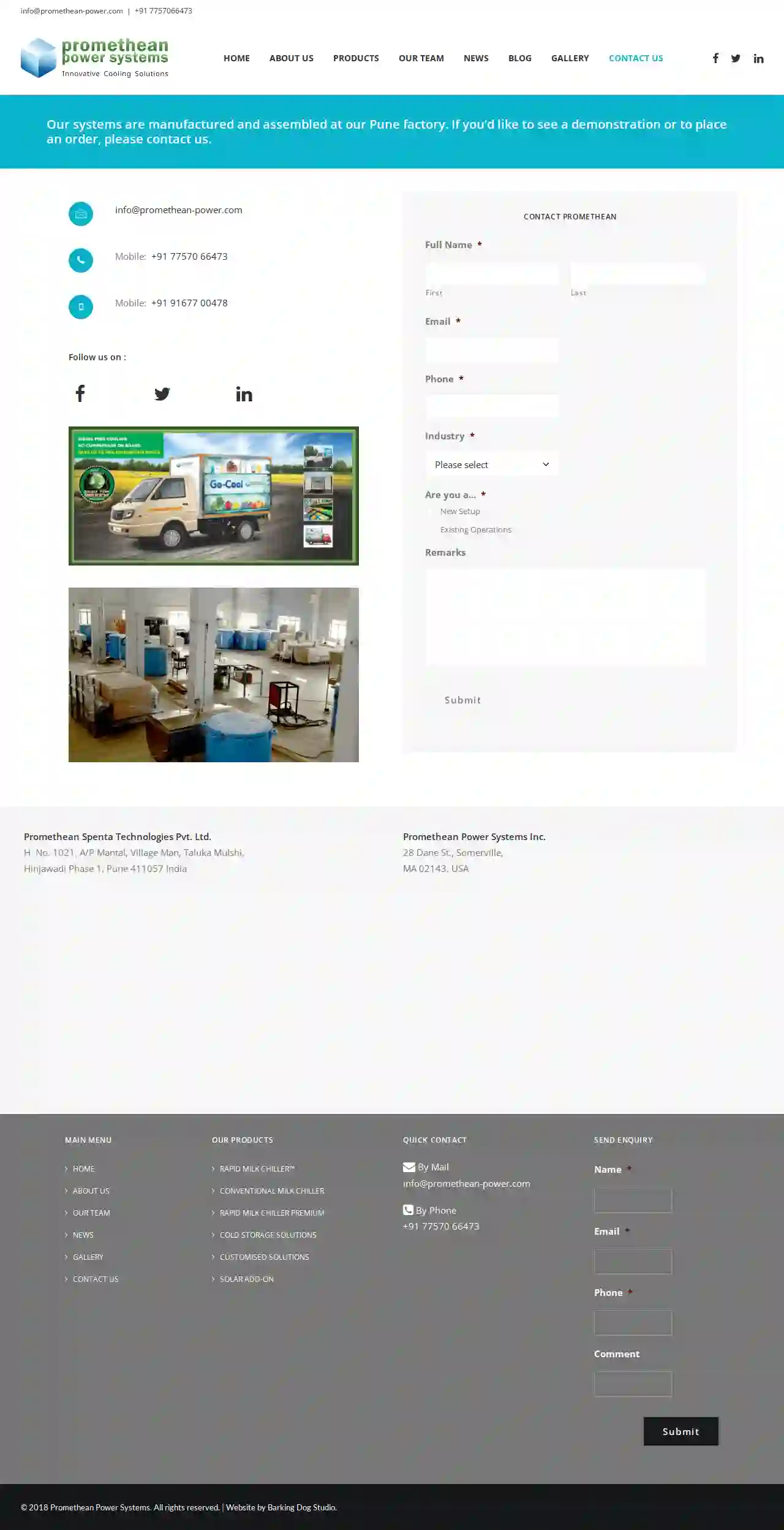Solar Installers Pepperell
Find the best Local Solar Installers in Pepperell
Get up to 3 Solar Companies quotes for your project today! Compare profiles, reviews, accreditations, portfolio, etc... and choose the best deal.

Mass Pro Solar
1629 Central St. Stoughton, Stoughton, 02072, USMass Pro Solar is a company that specializes in providing homeowners with simple and affordable clean energy solutions. They offer solar panels and handle all aspects of installation and maintenance with little to no upfront cost. Their goal is to eliminate electric bills by using the money customers already pay to utilities to help pay for their solar panels. They offer a 25-year warranty and have certified in-house installers to ensure the system is installed correctly.
- Services
- Why Us?
- Accreditations
- Our Team
- Testimonials
- Gallery
Get Quote
Smart Green Solar
11 reviews33 Broad Street, Suite 500, Providence, 02903, USSmart Green Solar is a full-service solar provider in Rhode Island and Massachusetts, driven by a commitment to help people go green and save money. We design solar panel installations that meet your unique power needs and aesthetic preferences. We are equipped to educate you about the advantages of transitioning to green energy so that you can turn electrical power into a more affordable and predictable commodity in your home and budget.
- Services
- Why Us?
- Accreditations
- Our Team
- Testimonials
- Gallery
Get Quote
621 Energy
Concord, MA, USA, 152 Commonwealth Avenue, Suite 21, 01742, US621 Energy is a Massachusetts-based company that builds, owns, operates, and services solar photovoltaic systems for businesses and nonprofit organizations. They provide a complete range of solar PV solutions including project development, turnkey installation, financing, operation and maintenance, and solar and energy consulting services. Their mission is to help customers reduce their energy costs and carbon footprint by providing quality, cost-effective, high-performing solar solutions. They also invest profits and time into providing solar solutions to nonprofits that serve local communities.
- Services
- Why Us?
- Accreditations
- Our Team
- Testimonials
- Gallery
Get Quote
Go Solar MA
3 Hallmark Gardens, Burlington, MA, 01803, USGo Solar MA is a leading solar company in Massachusetts dedicated to providing clean, green energy solutions to homeowners and businesses. With a focus on preserving the planet, Go Solar MA offers a range of services including solar panel installation, solar panel design, and solar resources. The company is committed to making the transition to solar power as seamless as possible, providing expert guidance throughout the process. Go Solar MA serves various locations across Massachusetts, including Boston, Worcester, Springfield, Cambridge, and Lowell.
- Services
- Why Us?
- Accreditations
- Our Team
- Testimonials
- Gallery
Get Quote
Mark The Solar Expert
4.935 reviews100 Grove Street, Worcester, 01605, USMark the Solar Expert is a no-cost solar panel installation company in Lancaster, PA. For over a decade, Mark has been helping homeowners switch to solar energy for free, with no loans, upfront payments, or leases. He partners with the United States' largest residential solar system installer to provide cheaper, cleaner solar power and renewable energy to various locations including Marlborough, MA, Framingham, MA, Falmouth, MA, Barnstable, MA, Providence, MA, Lowell, MA, Adams, MA, Northampton, MA, Great Barrington, MA, Deerfield, MA, Sturbridge, MA, Southborough, MA, Westborough, MA, Northborough, MA, Becket, MA, Taunton, MA, Wareham, MA, Attleboro, MA, Pittsfield, MA, Amherst, MA, Brockton, MA, Brockfield, MA, Princeton, MA, Gloucester, MA, and more. Mark offers consultations to show homeowners how to take advantage of no-cost solar installation, start saving money from day one, and potentially save tens of thousands in savings over the next 10-20 years.
- Services
- Why Us?
- Accreditations
- Our Team
- Gallery
Get Quote
Berkshire Solar Sense
123 Main St, Pittsfield, MA, 01201, USBerkshire Solar Sense is a leading provider of solar energy solutions in Massachusetts, with a focus on delivering high-quality, reliable, and environmentally friendly solar panels to homeowners and businesses. Our team of experienced professionals is dedicated to helping clients save money on their energy bills while also contributing to a greener future. We offer a range of services, including installation, maintenance, and repair of solar systems, as well as consultation and planning to ensure the best possible outcomes for our clients.
- Services
- Why Us?
- Accreditations
- Our Team
- Testimonials
- Gallery
Get Quote
SunPower by BlueSel Home Solar
4.79 reviewsBoston, USAccount Suspended This Account has been suspended. Contact your hosting provider for more information.
- Services
- Why Us?
Get Quote
DIY Solar Company, Inc.
4.615 reviewsDuxbury, MA, USA, 123 Solar Way, 02332, USDIY Solar Company, based in Duxbury, MA, offers top-tier solar installations in 34 states and DIY solar kits across USA, setting the standard for energy independence. DIY Solar is also the #1 Solar Repair Company in Massachusetts.
- Services
- Why Us?
- Accreditations
- Our Team
- Testimonials
- Gallery
Get Quote
Promethean Power Systems
Hinjawadi Phase 1, Pune, H. No. 1021, A/P Mantal, Village Man, Taluka Mulshi, 411057, USPromethean Power Systems designs and manufactures refrigeration systems for cold-storage and milk chilling applications in off-grid and partially electrified areas of developing countries. Our goal is to empower smallholder farmers through decentralized, sustainable cold storage solutions.
- Services
- Why Us?
- Accreditations
- Our Team
- Testimonials
- Gallery
Get Quote
Helios Solar Energy
535 reviewsMethuen, Massachusetts, 225 Broadway Ave, Suite 910, 01844, USHelios Solar Energy LLC is a local business that specializes in providing solar power solutions to residents. They offer a range of services including solar panel installation, maintenance, and repair. Their team consists of experienced professionals who are dedicated to providing high-quality service and ensuring customer satisfaction. They offer various incentives and promotions for new customers and have received positive reviews from their clients.
- Services
- Why Us?
- Accreditations
- Our Team
- Testimonials
- Gallery
Get Quote
Over 4,210+ Solar Installers on our directory
Our solar experts operate in Pepperell and surroundings!
SolarCompaniesHub has curated and vetted the Best Solar Installers in Pepperell. Find a trustworthy pro today.
Frequently Asked Questions About Solar Installers
- System size (measured in kilowatts, or kW)
- Type of solar panels (monocrystalline, polycrystalline, thin-film)
- Roof complexity (pitch, size, obstructions)
- Labor costs in your area
- Available incentives and rebates
- Your current energy usage
- The size of your solar system
- Your local electricity rates
- The amount of sunlight your panels receive
- Available net metering policies
What happens to my solar panels during a power outage?
What is the average cost of solar panel installation in USA?
How do solar panels work?
How much can I save on my electricity bill with solar panels?
What happens to my solar panels during a power outage?
What is the average cost of solar panel installation in USA?
- System size (measured in kilowatts, or kW)
- Type of solar panels (monocrystalline, polycrystalline, thin-film)
- Roof complexity (pitch, size, obstructions)
- Labor costs in your area
- Available incentives and rebates
How do solar panels work?
How much can I save on my electricity bill with solar panels?
- Your current energy usage
- The size of your solar system
- Your local electricity rates
- The amount of sunlight your panels receive
- Available net metering policies